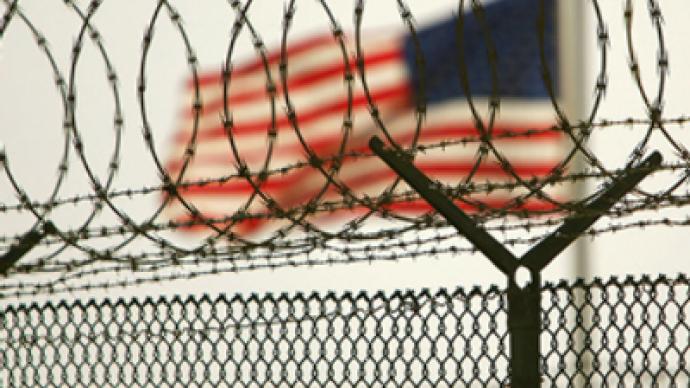Pentagon security breach threatens to make US wars even more secretive

The key to waging a successful war is to prevent secret information from falling into the hands of the enemy, yet it must be done without keeping the native population in the dark as well.
Although it is too early to say exactly what effect WikiLeaks’ publication of 92,201 secret documents on the Afghanistan War will have on US military procedure in the future, it is probably safe to say that the intimate details of future wars and battles will be much better guarded. But is that an intrinsically good thing?When Julian Assange, the editor of WikiLeaks made those documents available to every person on the planet at the touch of a button, it showed the vulnerabilities of technology, as well as of the world’s beefiest military. Although we now have the ability to collect millions of gigabytes of information on a single chip, that information can travel at the speed of light around the planet, and that is certainly not a good thing if it falls into enemy hands. Primitive as they may be, some Taliban members certainly have Internet access.Needless to say, the White House and the Pentagon are in full damage-control mode, while at the same time trying to determine who and where the destructive mole is.Pentagon spokesman Geoff Morrell told CBS's "The Early Show" that the military has launched "a very robust investigation" into the massive security breach, while admitting that the publication of the documents exposing US strategy, military missions and other minutiae of the war effort represents a huge threat to international troops in the war-torn country.Morrell says the security breach "involves secrets that should not be disseminated into the public domain and could potentially endanger our operations and our forces in Afghanistan." The released secret documents cover the period of the war from 2004-2009.Now whenever the military brass start quivering in their boots, you can pretty much guarantee that more jackboot restrictions on civil liberties are just a short march away.
WikiLeaks creates a double-edged sword
Although many people are applauding Julian Assange, 39, for having the courage to defy the wishes of the United States by releasing everything in the Pentagon’s clumsy closet, the eccentric former hacker may have unwittingly ushered in a brave new world of super-secrecy if the US military gets its way.The first indications of an over-the-top response to Wikileaks effrontery are already becoming visible in Australia, the place of Assange’s birth, where military groups are up in arms, claiming the released documents put soldiers’ lives at risk.On Wednesday, the Australia Defense Association (ADA) accused Assange of possibly committing a criminal offence by assisting an enemy of the Australian Defense Force (ADF)."Put bluntly, Wikileaks is not authorized in international or Australian law, nor equipped morally or operationally, to judge whether open publication of such material risks the safety, security, morale and legitimate objectives of Australian and allied troops fighting in a UN-endorsed military operation," said Neil James, ADA executive director.While the protests Down Under are entirely reasonable, the reaction to the disclosure will probably go beyond words in the US. The public’s “right to know” will get trampled under yet more fear-mongering in Washington. In other words, more restrictions on civil liberties, like those sanctioned by the draconian Patriot Act, may be on the way. The more hawkish elements in Washington will surely want to use the WikiLeaks incident to scare lawmakers into supporting legislation that could make future wars much more difficult to monitor.Do we have reason to fear from military brass and political leaders deciding to clamp an iron lid down on military strategy? Get rid of all those embedded reporters, and endorse yet more restrictions on what can be made available for public consumption? Ignore the Geneva Conventions, which is exactly what happened in Guantanamo Bay, Cuba (and is continuing to happen, despite robust promises by President Barack Obama to close the facility)?Or how about the Office of Strategic Influence, the brainchild of former Secretary of Defense Donald Rumsfeld, which “circulated classified proposals calling for aggressive campaigns which not only use the foreign media and the Internet, but also covert operations.” The office was boarded up in February 2002 under a howl of public protest, yet several months later the Office of Global Communications, which was empowered to “reverse America’s declining image abroad,” was opened.The list goes on: from the notorious cases of abuse inside of Iraqi prisons, to extraordinary rendition flights to black-hole torture sites in Eastern Europe that have still not been revealed, to the over-200 detainees inside Gitmo who have no legal rights and may be held indefinitely. It is these types of stains to America’s image that cannot be repeated.Although WikiLeaks’ vast revelations may rattle the nerves of the US Department of Defense for many days, it is the response of the latter to the database invasion that must be carefully watched. The American people cannot blink every time a security breach occurs, thereby handing more powers to the powers that be.So let us watch until the other shoe drops on this case to see how wise Julian Assange was to poke his stick into the hornets’ nest of the US military – not once, but twice.Thanks to WikiLeaks, we may all get stung in the end.
Robert Bridge, RT












